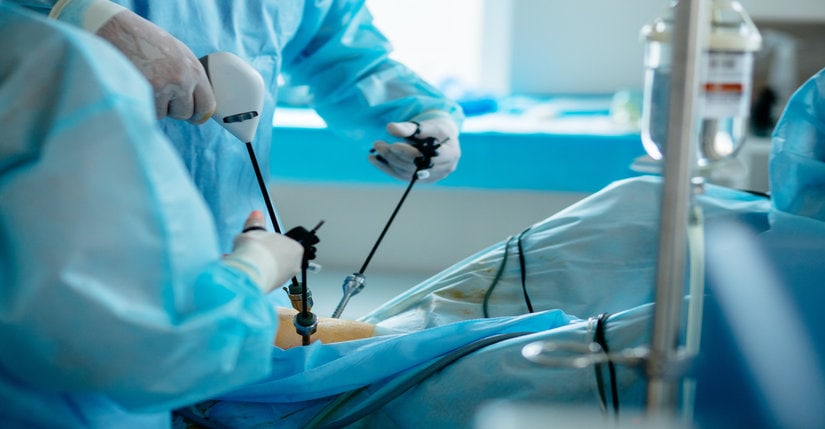Minimally Invasive Surgery Tourism: Advancements And Benefits

If you are considering surgery, you may want to explore the option of minimally invasive surgery tourism. This is a growing trend where patients travel to other countries to have minimally invasive surgeries performed at a lower cost.
Not only can this save you money, but it can also provide access to advanced surgical techniques and technologies that may not be available in your home country.
In this article, you will discover the many benefits of minimally invasive surgery tourism, including reduced scarring, shorter hospital stays, and faster recovery times. You will also learn about the evolution of minimally invasive surgery techniques, global trends in surgery tourism, and how to prepare for your trip.
By the end of this article, you will have a comprehensive understanding of the opportunities and considerations associated with minimally invasive surgery tourism.
Key Takeaways
- Minimally invasive surgery tourism is a growing trend that offers cost savings and access to advanced techniques and technologies.
- Patients should research the medical facility and surgeon beforehand and consider cultural differences and social/economic factors when selecting a destination for medical tourism.
- Board-certified surgeons with a strong track record of success and necessary qualifications and certifications are ideal for minimally invasive surgery.
- Advancements in minimally invasive surgery tourism, such as remote surgical procedures and robotic-assisted surgeries, offer a higher level of care and better outcomes for patients.
Understanding Minimally Invasive Surgery
You might be wondering, “What’s minimally invasive surgery?”Well, let me break it down for you. It’s a surgical technique that uses small incisions and specialized instruments to perform procedures with less trauma to the body. Compared to traditional open surgery, which involves larger incisions and longer recovery times, minimally invasive surgery offers many benefits.
One of the primary benefits of minimally invasive surgery is that it results in less pain and scarring. Because the incisions are smaller, there is less damage to surrounding tissue, allowing for a faster recovery and less discomfort. Additionally, because the surgical site is smaller, there is less chance of infection and other complications.
Overall, minimally invasive surgery is a safer, more efficient, and less painful option for many patients.
The Evolution of Minimally Invasive Surgery Techniques
As a medical tourist, it’s easy to overlook the significant progress that has been made in the techniques used for less invasive procedures. The evolution of minimally invasive surgery has led to a variety of techniques that are now available for patients seeking treatment.
Here are four examples of some of the most innovative and advanced techniques used in minimally invasive surgery:
- Robotic surgery: This method uses robotic arms controlled by a surgeon to perform precise movements. It allows for greater accuracy and control, resulting in less damage to surrounding tissue and a quicker recovery time.
- Laparoscopic surgery: This technique involves making small incisions and using a camera to guide the surgeon’s instruments. It is often used in abdominal surgeries and can result in less pain, scarring, and a shorter hospital stay.
- Endoscopic surgery: This method uses a flexible tube with a camera and light on the end to view and treat internal organs. It can be used for various procedures and is less invasive than traditional surgery.
- Microsurgery: This technique involves using specialized instruments and a microscope to perform delicate surgeries on small structures, such as nerves and blood vessels. It allows for greater precision and can lead to better outcomes for patients.
These advancements in minimally invasive surgery techniques have revolutionized the field and allowed for safer, more efficient procedures with fewer complications. As a medical tourist, it’s important to be aware of these options and to discuss them with your healthcare provider to determine the best course of treatment for your specific needs.
Global Trends in Minimally Invasive Surgery Tourism
If you’re considering medical travel, it’s worth noting that globally, more patients are choosing minimally invasive procedures over traditional surgeries due to their shorter recovery times and lower risk of complications. This trend is especially prevalent in countries like India, Thailand, and Mexico, where medical tourism is booming. These countries offer state-of-the-art facilities and highly trained medical professionals who specialize in minimally invasive surgeries, making them an attractive option for patients seeking affordable and high-quality medical care.
In addition to the benefits of minimally invasive surgery itself, medical travel for these procedures also offers the added benefits of cost savings and the opportunity to explore new destinations. With the rising costs of healthcare in certain countries, patients are turning to medical tourism as a cost-effective alternative. And with the ability to combine medical procedures with a vacation, patients can enjoy the benefits of both worlds.
Overall, the global trend towards minimally invasive surgery tourism is only expected to continue to grow in popularity.
Benefits of Minimally Invasive Surgery Tourism for Patients
Indulging in medical travel not only allows you to experience a different culture, but it can also provide you with an opportunity to receive top-notch medical care at a fraction of the cost compared to your home country. In the case of minimally invasive surgery, medical tourism offers various benefits for patients. Firstly, minimally invasive surgery procedures are less invasive, which means that patients experience less pain, scarring, and risk of complications. This makes it an attractive option for patients who want to undergo surgery without the risks associated with traditional surgery.
Secondly, the cost of minimally invasive surgery is also significantly lower than traditional surgery. By undergoing minimally invasive surgery abroad, patients can save up to 70% on the cost of the procedure, including travel and accommodation expenses. This makes it an affordable option for patients who cannot afford the high cost of surgery in their home country. Moreover, the quality of care provided by medical facilities abroad is often comparable or even better than in some developed countries.
| Advantages of Minimally Invasive Surgery Tourism | ||||
|---|---|---|---|---|
| Less pain | Less scarring | Fewer complications | Affordable option | Improved quality of care |
Minimally invasive surgery tourism offers patients the opportunity to undergo high-quality medical procedures at a fraction of the cost compared to their home country. Patients can benefit from less pain, scarring, and complications, making it an attractive option for those who want to minimize the risks associated with traditional surgery. Additionally, by undergoing minimally invasive surgery abroad, patients can save a significant amount of money while receiving comparable or even better quality of care.
Preparing for Minimally Invasive Surgery Tourism
Get ready for your medical travel experience by preparing for your upcoming minimally invasive procedure. Here are some tips to help you get ready:
- Consult with your doctor beforehand to determine if you’re a good candidate for minimally invasive surgery.
- Make sure to disclose all medications and supplements you’re currently taking to your doctor.
Research the medical facility and surgeon you’ll be visiting to ensure they have a good reputation and experience in performing the specific procedure you need.
Preparing for your minimally invasive surgery tourism experience can help ensure a smoother and safer trip. By taking the time to consult with your doctor, disclose all necessary information, and research your medical facility and surgeon, you can have peace of mind and focus on your recovery.
Choosing a Destination for Minimally Invasive Surgery
Before selecting a destination for your procedure, it’s important to consider the cultural, social, and economic factors that may impact your overall experience.
Firstly, cultural differences may play a significant role in how comfortable you feel during your stay in a foreign country. For example, language barriers can make communication difficult, and unfamiliar customs may cause confusion or discomfort. It’s important to research the culture of the country you’re considering and ensure that you’re comfortable with the potential differences you may encounter.
Additionally, social and economic factors may impact your decision. Some countries may offer lower costs for medical procedures, but this may come at the expense of quality of care. It’s important to research the reputation of the medical facility and the qualifications of the medical professionals who will be performing your procedure.
Additionally, you may want to consider the availability of support services, such as transportation and accommodations, as well as the accessibility of the destination. By considering these factors, you can make an informed decision and select a destination that will provide you with a positive experience.
Selecting a Surgeon for Minimally Invasive Surgery
When it comes to selecting a surgeon for your procedure, you’ll want to be sure that you choose someone who is experienced and skilled in the specific type of surgery you require. This is especially important when it comes to minimally invasive surgery, as it requires a high level of precision and expertise.
Here are some tips to help you select the right surgeon for your needs:
- Do your research: Look for a surgeon who’s board-certified and has a strong track record of success with the specific type of surgery you need.
- Consider experience: Ask how many similar procedures the surgeon has performed and what their success rate is.
- Check credentials: Ensure that the surgeon has the necessary qualifications and certifications to perform the surgery.
- Ask for referrals: Talk to your primary care physician, friends, and family members for recommendations.
- Meet with the surgeon: Schedule a consultation with the surgeon to discuss your procedure and get a sense of their communication style and bedside manner.
Taking the time to carefully select a qualified surgeon can make all the difference in the success of your minimally invasive surgery. Don’t be afraid to ask questions and do your due diligence to ensure you’re in good hands.
Risks and Considerations for Minimally Invasive Surgery Tourism
Looking for a unique medical experience? Consider the potential risks before traveling abroad for minimally invasive procedures. While the idea of combining medical treatment with tourism may seem appealing, it’s important to recognize the potential dangers of seeking medical care in a foreign country.
One major risk is the lack of regulation and oversight in some countries, which can lead to subpar medical care and even dangerous outcomes. Furthermore, language barriers and cultural differences can also make communication with medical professionals difficult, potentially leading to misunderstandings or even misdiagnosis.
In addition, post-operative care may be challenging if you’re not able to remain in the country for an extended period of time. Before making the decision to travel abroad for minimally invasive surgery, consider all of these factors and consult with a trusted medical professional to make an informed decision about your health and well-being.
Future Directions in Minimally Invasive Surgery Tourism
You may be curious about where the future of medical travel is headed, and there are exciting developments on the horizon for those seeking treatment abroad. Here are three potential advancements in minimally invasive surgery tourism to look out for:
- Remote surgical procedures: With the advancement of technology and telemedicine, it may soon be possible for patients to have minimally invasive surgeries performed by skilled surgeons remotely. This would allow patients to receive expert care from the best doctors around the world without ever leaving their home country.
- Increased use of robotics: Robotics are already being used in many minimally invasive surgeries, but their use is likely to become even more widespread in the future. Robotic-assisted surgeries offer a level of precision and control that is difficult to achieve with traditional surgery, and they can also reduce recovery time and minimize scarring.
- More specialized procedures: As more patients travel abroad for minimally invasive surgeries, it is likely that medical tourism providers will begin to offer more specialized procedures. This could include things like complex spinal surgeries, advanced cardiac procedures, or even experimental treatments that aren’t yet available in the patient’s home country.
Overall, the future of minimally invasive surgery tourism is bright, and patients can look forward to more options, better outcomes, and a higher level of care.
Frequently Asked Questions
What are the costs associated with minimally invasive surgery tourism?
You may be wondering about the costs of minimally invasive surgery tourism. Prices vary depending on the country and procedure, but they can be significantly lower than in your home country. However, be sure to factor in travel expenses and potential risks.
Are there any potential negative effects of traveling for surgery, such as increased risk of infection or complications?
When traveling for surgery, you may face increased risk of infection or complications. It’s important to thoroughly research the facility, surgeon, and follow all pre and post-operative instructions to minimize these risks.
How does the quality of care in foreign countries compare to that of the patient’s home country?
When considering surgery abroad, you may wonder about the quality of care compared to your home country. It’s important to research the facility and surgeon, as well as the country’s healthcare regulations and standards, to ensure a safe and successful procedure.
What kind of aftercare and follow-up is necessary for patients who have undergone minimally invasive surgery abroad?
After undergoing minimally invasive surgery abroad, you will need to follow up with your surgeon and ensure that you have access to appropriate aftercare. This may include regular check-ups, physical therapy, and monitoring for potential complications.
How does the language barrier affect communication with medical professionals during the surgery and recovery process?
The language barrier can make it difficult to communicate effectively with medical professionals during surgery and recovery. You may need to rely on interpreters or language translation devices to ensure that important information is conveyed accurately.
Conclusion
Congratulations on learning about the advancements and benefits of minimally invasive surgery tourism! By opting for this medical tourism option, you’ll have access to state-of-the-art techniques and equipment, as well as skilled surgeons who specialize in these procedures.
Additionally, you can enjoy the added bonus of exploring new destinations and cultures while receiving high-quality medical care. As you prepare for your trip, be sure to carefully research and choose your destination and surgeon to ensure the best possible outcome.
Remember to also consider any potential risks and take necessary precautions. With proper planning and preparation, minimally invasive surgery tourism can be a safe and rewarding experience for patients seeking quality care and a unique travel experience.









